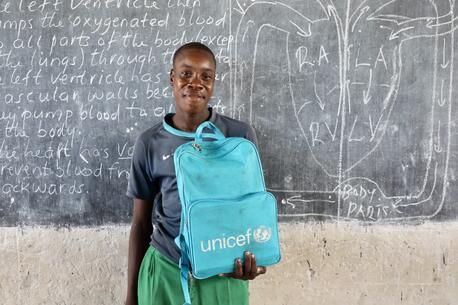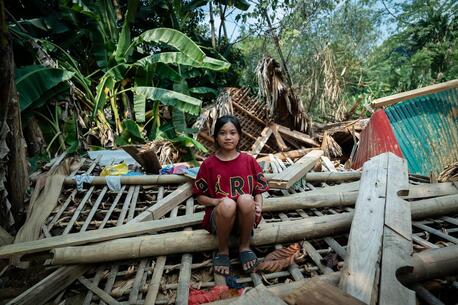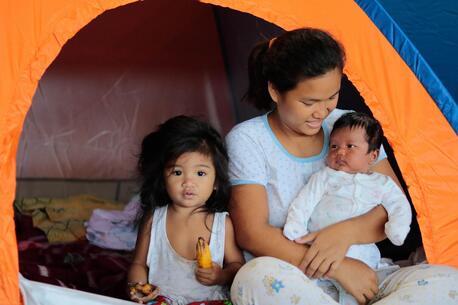
UNICEF in the Philippines
The Southeast Asian nation of over 7,100 islands in the western Pacific is one of the most climate disaster-prone countries in the world. Take a look at what UNICEF is doing to meet the needs of children in the Philippines and to support their safety and well-being.
Climate disasters drive humanitarian needs of children in the Philippines
The frequency of climate-driven disasters makes it difficult for the Philippines to overcome issues of poverty and malnutrition. Education infrastructure is failing and violence against children is prevalent.
Cyclones, typhoons and severe storms slam the Philippines with regularity, causing floods and landslides, while other areas experience drought. Earthquakes and volcanic eruptions, disease outbreaks and decades-long civil conflicts have only added to the country's woes, and have been devastating for children.
About one-third of all children in the Philippines live below the poverty line. One-third are stunted, or short for their age, and tens of thousands of children die from malnutrition every year.
Low routine immunization coverage and poor access to safe water and sanitation also threaten child survival and healthy development. In 2024, the country experienced outbreaks of measles and pertussis, as well as increasing polio cases – all diseases that are highly infectious for children.
Children who do survive beyond age 5 face mounting challenges that interfere with their ability to thrive.
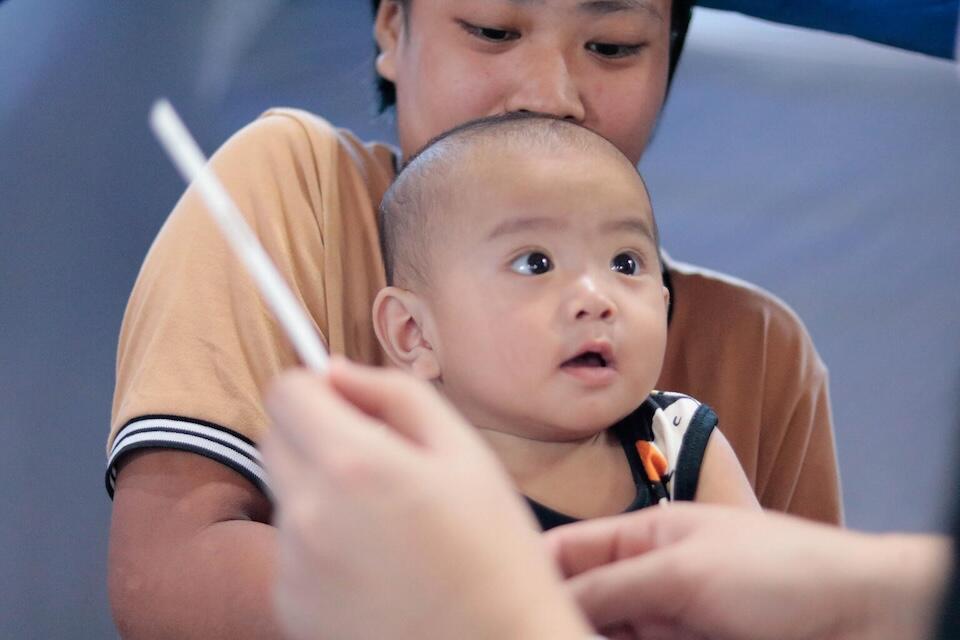
Low investment in education, outdated teaching methods and a limited focus on child development leave Filipino children lagging behind. Only one- quarter of preschool-aged children have access to early learning and as little as 10 percent of 5th graders achieve minimum reading proficiency levels.
Almost 2 million children are out of school entirely. The situation is worse among Indigenous children, children with disabilities and other marginalized groups.
In the face of cascading weather disasters, children in the Philippines often become more vulnerable to violence, trafficking and stress during emergencies. About 80 percent of children in the Philippines report that they have experienced some form of physical, psychological, sexual or online violence, often committed by people they trust.
UNICEF is working to protect and support children in the Philippines
UNICEF has been working to promote and protect the rights of every child in the Philippines, with a particular focus on the most vulnerable and disadvantaged, since 1948.
When disaster strikes, UNICEF helps the government assess urgent needs and provide emergency relief, delivering lifesaving supplies to impacted communities. On an ongoing basis, UNICEF works with the government and other partners to strengthen and improve national policies, programs and services across major program areas.
Supporting children's health in the Philippines
From the first 1,000 days of a child’s life through adolescence, UNICEF works with partners to deliver inclusive access to age-appropriate, culturally sensitive, gender-responsive and disaster-resilient health, nutrition and water, sanitation and hygiene (WASH) programs and interventions.
Following the climate-related storms and disasters of 2022 and 2023, UNICEF helped to provide hundreds of thousands of children and women with access to primary health care, as well as emergency WASH infrastructure, supplies and services.
To support the response to measles and pertussis outbreaks in 2024, UNICEF helped ramp up immunization services, procuring and organizing the deployment of millions of doses of vaccines.
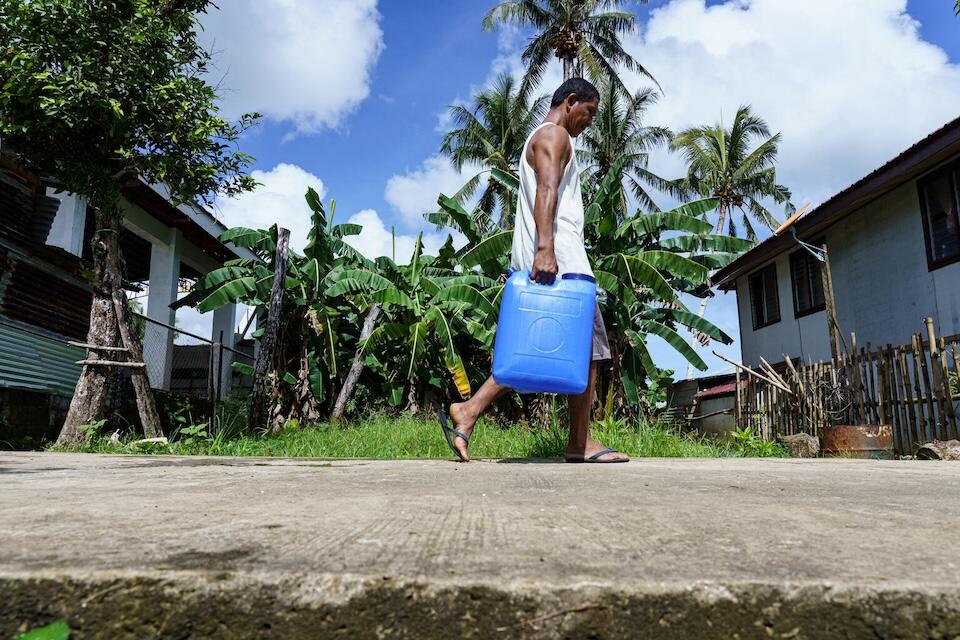
Helping to ensure every child in the Philippines gets educated
UNICEF works with the government to ensure that every child in the Philippines, no matter their circumstance, has access to quality and inclusive formal and informal learning opportunities. While advocating for a greater investment in education, UNICEF supports policy improvements, system strengthening and field-level innovations at every level, from early childhood education to adolescent learning.
Working with the Philippines' Department of Education, UNICEF supports the use of regional learning assessments and various research initiatives to improve curricula. To ensure equal access for the most disadvantaged children and adolescents – those in remote areas, children with disabilities, children from Indigenous backgrounds and impoverished households – UNICEF works with partners to implement digital learning interventions such as the Learning Passport digital stories and mobile apps.
UNICEF's child protection work in the Philippines
To reduce all forms of violence against children in the Philippines – including those impacted by natural disasters and armed conflict – UNICEF partners with the government and civil society groups to establish and implement child protection laws and policies based on international standards. One example is the National Plan of Action for Children.
Often violence against children in the Philippines is committed by trusted individuals, and as many as 70 percent of children are not aware of services that they can turn to. UNICEF is working tirelessly to improve access to quality, responsive and inclusive child welfare services.
Building resilience of families and communities through social policy and governance
Although the poverty rate in the Philippines has been decreasing, families remain vulnerable to shocks and stresses caused by natural disasters, climate change and armed conflict. A UNICEF priority is to help build resilience among Filipino families through the influence of national policy development, planning and budgeting so that support is provided to children who need it the most.
Under the country under constant threat of natural disaster, UNICEF works to integrate disaster preparedness and climate change adaptation into local as well as national government planning and budgeting.
UNICEF is also focused on ensuring socially excluded groups like Indigenous children and children with disabilities are set up to benefit from government social protection and poverty reduction programs.
Help increase UNICEF's impact for children in the Philippines and around the world. Donate today.
